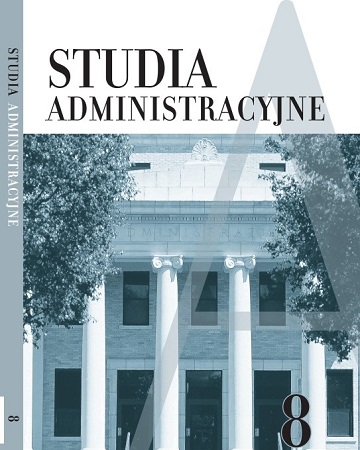





| Authors: |
Adam
Banaszkiewicz
Wydział Nauk Humanistycznych i Społecznych Karkonoska Państwowa Szkoła Wyższa w Jeleniej Górze |
| Keywords: | complaint against the prosecutor’s decision discontinuance of the proceedings refusal to initiate an investigation criminal proceedings art. 306 CCP |
| Data publikacji całości: | 2016 |
| Page range: | 8 (167-174) |
| Downloads ?: | 873 |
| 1. | Grzeszczyk W., Glosa do uchwały Sądu Najwyższego z dnia 20 marca 2008 r., sygn. I KZP 39/07 (dot. ponownego postanowienia prokuratora o umorzeniu postępowania przygotowawczego), „Prokuratura i Prawo” 2008, nr 7–8, s. 230–237. |
| 2. | Grzeszczyk W., Nowela do kodeksu postępowania karnego z dnia 29 marca 2007 r., „Prokuratura i Prawo” 2007, nr 7–8, s. 97–106. |
| 3. | Stefański R.A., Aktualny model postępowania przygotowawczego w polskim procesie karnym, „Ius Novum” 2007, nr 2/3, s. 65–92. |
| 4. | Zagrodnik J., Glosa do uchwały SN z 20 III 2008, I KZP 39/07, „Państwo i Prawo” 2009, z. 1, s. 127–133. |
| 5. | Ustawa z dnia 6 czerwca 1997 r. Kodeks karny (DzU z 1997 r., nr 88, poz. 553 z późn. zm.). |
| 6. | Ustawa z dnia 6 czerwca 1997 r. Kodeks postępowania karnego (DzU z 1997 r., nr 89, poz. 555 z późn. zm.). |
| 7. | Ustawa z dnia 22 marca 2013 roku o zmianie ustawy Kodeks postępowania karnego (DzU z 2013 r., poz. 480). |
| 8. | Uchwała Sądu Najwyższego z dnia 20 marca 2008 r., SN I KZP 39/07, OSNKW 2008, nr 5, poz. 32. Wyrok Sądu Najwyższego z dnia 10 lipca 2013 r., IV KK 87/13. |